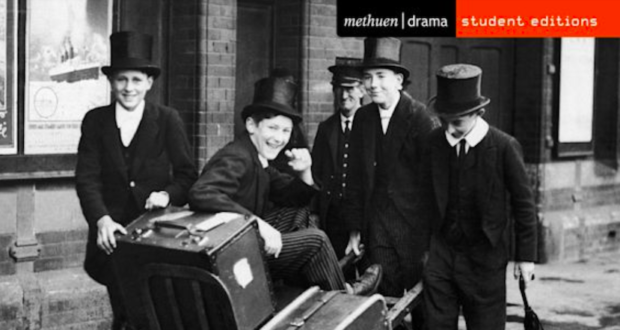A beautifully presented educational edition of Laura Wade’s 2010 play. Summary
Rating
Excellent
As an educator, I was delighted to read such a well-thought-out and thoroughly researched introductory section (written by Henry Bell) that not only familiarises students with the play but also discusses all elements of theatre production, making it very useful for both teachers and students alike.
This edition opens with a clear explanation of the political landscape in 2010, when Posh was first performed, and also explains how this has changed by the time the play had its second run in the West End. This is especially helpful for students studying the play who would have been very young children (or not even born!) when this story first came to the stage. The ‘Behind the Scenes’ boxes are excellent and include useful insights on how to stage the play, covering all aspects of technical theatre as well as directorial advice. In one of these boxes, Wade discusses how the text could be approached in a gender-swapped production, giving advice on how female-identifying actors could physically embody the male characters in the script. The introductory section contains enough information and prompts for busy teachers and is also clear enough for A Level students (and indeed more advanced GCSE students) to read, understand, and take into account when producing their own production of this play. It also discusses past criticism of the play and how the script has been adapted since that criticism, subsequently receiving more positive reviews. This is valuable insight for young theatre-makers.
Even if the reader wasn’t educated at a British private school, they will still be aware of the types of stereotypical characters that come from such establishments. The characterisation in this play is spot on in that sense. A sense of entitlement oozes from Wade’s words and the frequent mentions of large amounts of cold hard cash being flung around are both unsurprising and uncomfortable. The boys assume that they can do what they want as long as they have enough money to pay off those whose property they damage. Their attitudes to women are deplorable, and the two female characters both receive a rough deal in the play, being treated as playthings instead of human beings. Inevitably, the boys’ traditional ‘trashing’ goes wrong, and their first instinct is to call their fathers, not the emergency services, showing their sense of entitlement, power, and untouchability.
The climax of the play is achieved through physical theatre and choreography rather than words, and the stage directions are useful here. There is also mention in the introduction of how to stage this most effectively and how to use music to good effect. The notes section at the back of the text is comprehensive and makes the text accessible to anyone reading who has not been part of the elite British educational world. This is another useful feature of this education edition for teachers and makes the text more comprehensible for home study.
Author: Laura Wade
Anthology editor: Henry Bell
This edition is available in Methuen Drama from Bloomsbury Publishing, ISBN 9781350235762.
 Everything Theatre Reviews, interviews and news for theatre lovers, London and beyond
Everything Theatre Reviews, interviews and news for theatre lovers, London and beyond



